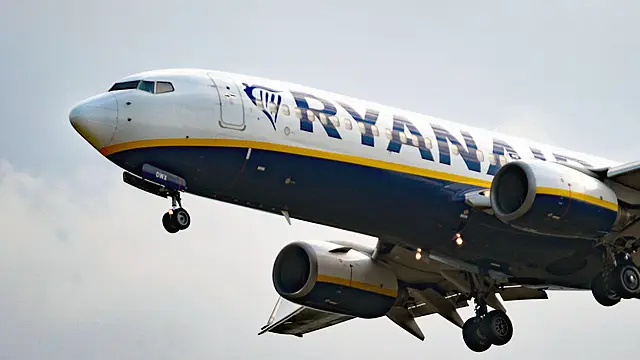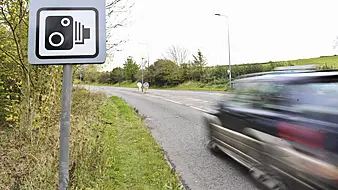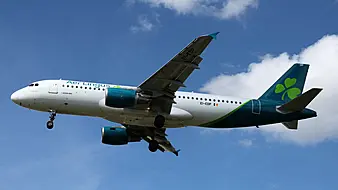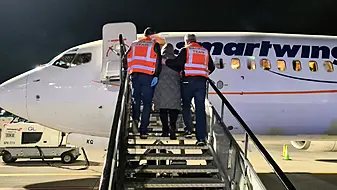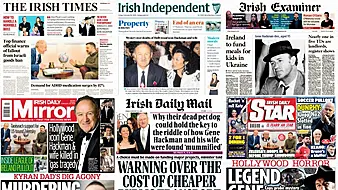Ryanair has issued High Court proceedings claiming a search of its premises by officials from competition authorities in Ireland and Italy, accompanied by gardaí, was conducted with an alleged invalid warrant.
The airline is asking the court to quash the warrant, issued by the Dublin Metropolitan District Court last March 8th, on grounds claiming that the issuing judge was allegedly wrongly not informed about two key Italian rulings that it says supports its position that it is not abusing its dominant market position.
It alleges the Italian competition authority, Autoritá Garante della Concorrenza e del Mercato (AGCM), and its Irish counterpart, the Competition and Consumer Protection Commission (CCPC), breached its fundamental rights by failing to tell the District Court judge about relevant information and by acting on a warrant that allegedly contained errors.
The court should declare that the material seized is, either in whole or in part, tainted by illegality and is inadmissible and should not have been removed from Ireland, Ryanair contends.
Thirty officers of both authorities and gardaí conducted an unannounced inspection of Ryanair’s premises in Swords, north Dublin, on March 8th.
The CCPC said the search was conducted on behalf of the AGCM. The Italian authority announced in September 2023 that it had opened an investigation into Ryanair for “possible abuse of a dominant (market) position”.
In an affidavit, Ryanair’s head of competition, Eoin Kealy, said the company has cooperated with the AGCM throughout its investigation, which arose out of claims from two Italian travel agency associations and a consumer association.
They allege Ryanair’s model of direct online sale of its tickets to consumers constitutes an abuse of a dominant position under Italian and EU law, he said.
Ryanair precludes travel agencies from purchasing tickets via its website, where the lowest fares are available, and directs them instead to a global distribution system, he said.
The Italian associations allege this policy jeopardises the performance of effective competition in the tourism services market to the detriment of travel agencies, leading to negative effects for their consumers, he said.
Ryanair “entirely rejects” those allegations and is supported in its position by two decisions of the Court of Appeal of Milan in cases against the airline, Mr Kealy said.
Documents
Last January, that court found Ryanair’s conduct in reserving the online sale of tickets to itself did not constitute abuse of position, and this should have been flagged to the judge who issued the warrant, he added.
On Friday, Martin Hayden SC for Ryanair told the High Court the documents should not have been seized under this warrant and should not have been removed from the jurisdiction despite concerns raised by his client.
Ryanair also claims many of the seized documents are covered by confidential, irrelevant, commercial sensitive or covered by legal professional privilege, he said.
Mr Hayden was glad “some sense” has taken hold, in that the ACGM has now agreed not to look at the seized documents until the court decides on its challenge to the warrant, which is due to be argued in court on May 10th.
Eoin McCullough SC said his client, the AGCM, would give a temporary undertaking to the court not to look at any of the documents.
He said the Italian agency will decide by next Wednesday whether it will challenge the Irish court’s jurisdiction to hear Ryanair’s case.
Senior counsel for the CCPC, Nessa Cahill, said she does not accept any of the facts as presented by Ryanair.
She told Mr Justice Max Barrett that the airline was represented by its solicitors, Arthur Cox, during the search and any assertion of privilege made regarding the documents was respected by competition officers.
She said the parties have agreed to ask former chief justice Frank Clarke to examine the files and consider which are covered by Ryanair’s claim of professional privilege.
More than 200 documents were seized, which is a relatively small number, she added. The CCPC does not accept there is any limitation on its power to seize documents that may be irrelevant to the investigation, she added.
Ryanair, via its companies Ryanair DAC and Ryanair Holdings PLC, is asking the court to quash the warrant and to make an order restraining the authorities from reviewing any of the material seized, which should be returned to Ireland.
The airline also contends it is entitled to damages, including for breach of duty and breach of Ryanair’s constitutional right to a fair trial and privacy.
The CCPC is the statutory body responsible for the enforcement of competition law in Ireland.
EU competition law allows a competition authority of one member state to request another member state’s authority to inspect on its behalf to establish whether there has been an infringement of EU competition law, the CCPC has said.
